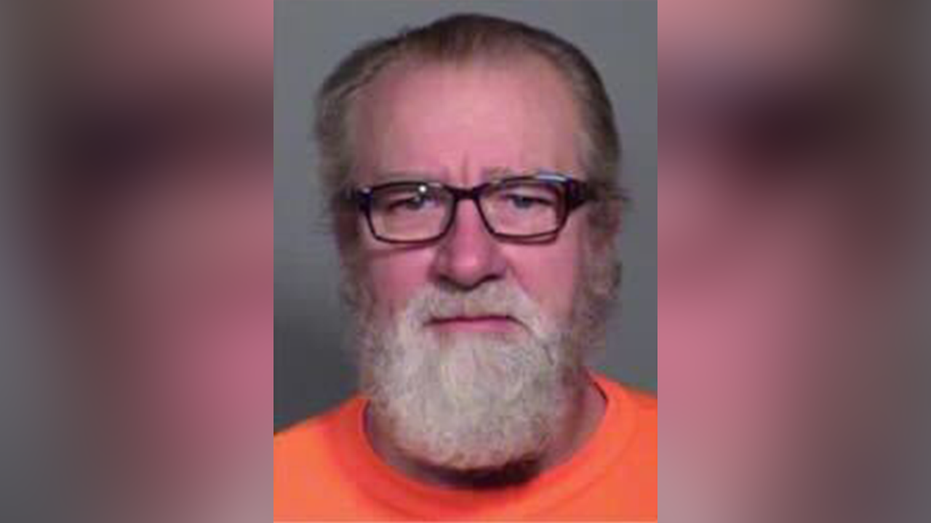In a harrowing development from Arizona’s correctional facilities, a prisoner already bearing the heavy burden of 16 life sentences has been charged with the murders of three fellow inmates. The allegations emerged from an investigation that raises serious questions about prison safety and inmate management.
The accused, identified as 42-year-old Jesse Chavarria, has been in custody since 2013 after being convicted of various violent crimes, including robbery and aggravated assault, which led to consecutive life sentences. Chavarria was already known to prison authorities for exhibiting violent behavior and was considered a high-risk inmate. However, the recent charges have escalated concerns about the potential for violence within prison walls.
This shocking incident took place at the Arizona State Prison Complex in Florence, where conflicts and altercations between inmates are not uncommon. The facility, designed to house the most dangerous individuals, has often been plagued with issues related to inmate management and gang violence. Officials reported thatChavarria is believed to have attacked his fellow inmates during a series of altercations that left three individuals dead.
According to reports, the victims were identified as 35-year-old Juan Carlos, 36-year-old Michael Priest, and 33-year-old Derek Wallace, all of whom shared the same facility as Chavarria. The details surrounding the incidents leading up to their deaths are still being investigated, but preliminary findings suggest the possibility of gang affiliations playing a role in the altercations.
Witnesses reported hearing loud sounds coming from Chavarria’s cell on the night of the attacks, followed by an unusual silence. It wasn’t until correctional officers conducted their routine checks that they discovered the gruesome scene in a common area. Chavarria was reportedly in the vicinity of the victims when the officers arrived.
Prison officials stated that they quickly placed Chavarria on suicide watch due to the nature of the allegations against him and to ensure his safety. As the investigation unfolds, authorities are also aiming to gather additional testimonies from other inmates to build a clearer picture of the incidents and any possible motives behind the killings.
In a recent press conference, corrections officials expressed their deep concerns regarding this incident and its ramifications for inmate safety in Arizona prisons. “We take any report of violence extremely seriously and are dedicated to addressing any issues related to safety in our facilities,” commented a spokesperson from the Arizona Department of Corrections. Such statements reflect the systemic needs for improvements in the prison environment, especially given the number of inmates serving multiple life sentences.
Safety within prisons has been an ongoing concern for both inmates and staff alike. Overcrowding, inadequate staffing, and the prevalence of gangs lead to volatile situations that can erupt into violence, as evidenced by the recent killings. Many advocates for prison reform have long argued that legislative changes are necessary to ensure the safety and dignity of everyone within the corrections system.
This tragic event has highlighted the need for immediate reviews of security protocols and intervention strategies. Advocates have been calling for a deeper investigation into the conditions that allowed such violence to occur. Many believe better training for staff, enhanced monitoring systems, and broader mental health support could help mitigate violence in prisons.
Analyzing the background of Jesse Chavarria offers insight into the challenges faced within the criminal justice system. Chavarria, a known member of a local street gang, has a criminal history that spans over two decades. His entrance into the adult penal system began at the young age of 18. Over the years, his criminal dealings have resulted in numerous arrests and convictions, primarily revolving around violent offenses.
Reportedly, his gang affiliations and previous charges have shaped a volatile personality which has led to numerous altercations within other facilities. This has resulted in his placement in higher-security units throughout his incarceration. The combination of a violent past and allegations of gang activities adds layers of complexity to the current homicide charges he faces.
The systemic failures that might have contributed to this violent incident are part of a broader dialogue around prison reform occurring across the nation. Many states, including Arizona, have struggled with how to effectively manage high-risk individuals within their facilities. The challenge often lies in balancing safety for staff and inmates with rehabilitation efforts aimed at reducing recidivism and easing the transition back into society.
As investigators dig deeper into this heinous case, the implications could resound beyond the walls of the prison. Experts suggest that if the prison system fails to adequately address the needs of inmates, this could lead to continued cycles of violence and further complications within the legal and mental health systems. The future of not just the inmates, but the prison staff and the broader community, could hinge on the actions taken in the wake of these tragic events.
Calls for accountability and structural changes in the corrections system are beginning to gain traction in Arizona and other states across America. There is a growing constituency that demands safer conditions within prisons, alongside rehabilitation-focused policies that could help inmates reintegrate successfully into society.
Furthermore, family members of the victims, as well as advocates fighting for prison reform, reiterate the importance of ensuring justice not just for the deceased but for all individuals affected by these violent crimes. The emotional toll that such events take on families, staff, and other inmates can last a lifetime. As this story continues to unfold, the overarching theme remains clear: state officials must double down on efforts to ensure safety and order within their facilities.
The allegations against Jesse Chavarria represent a microcosm of the larger issues facing the corrections system. This incident emphasizes the urgent need for systemic change to prevent further depletion of lives due to violence behind bars. As stakeholders assess the situation, Arizona may serve as critical ground zero for discussions surrounding accountability, rehabilitation, and ultimately, the future of its prison system.
In conclusion, the alleged triple homicide resulting from one inmate’s violent past raises critical questions about the effectiveness of current prison management practices. As investigations proceed, both the legal implications for Chavarria and the systemic ramifications for Arizona’s correctional facilities will continue to develop, demanding attention from legislators, advocates, and the public alike.
































